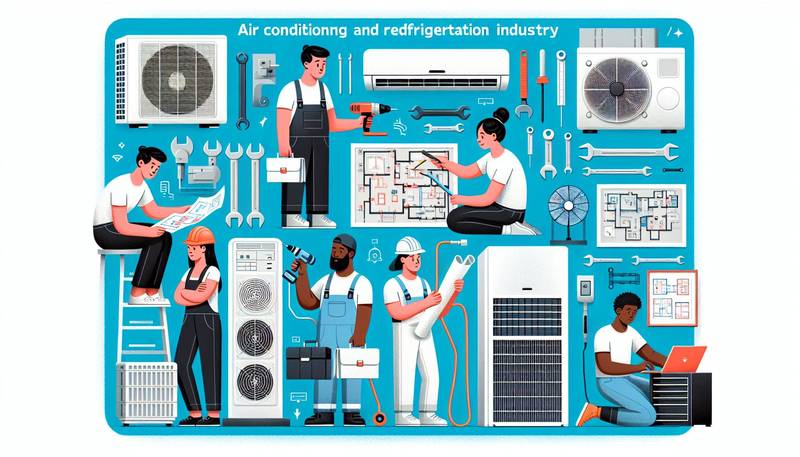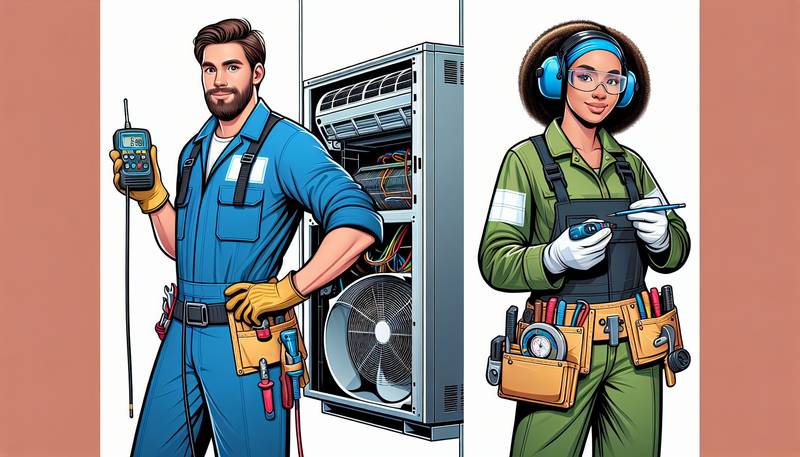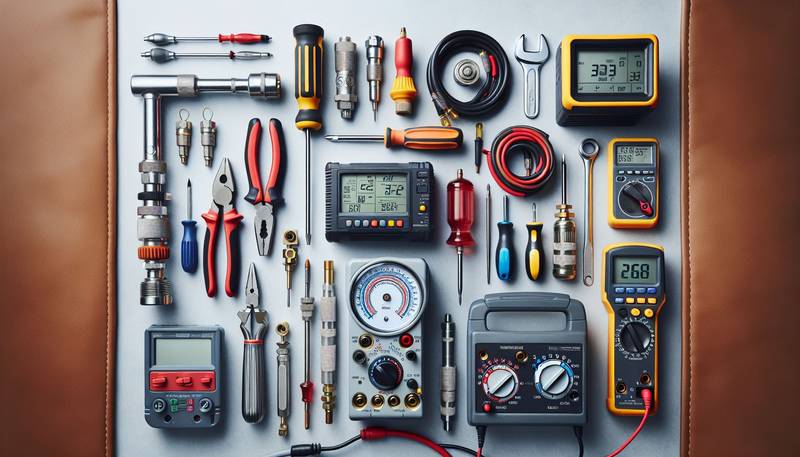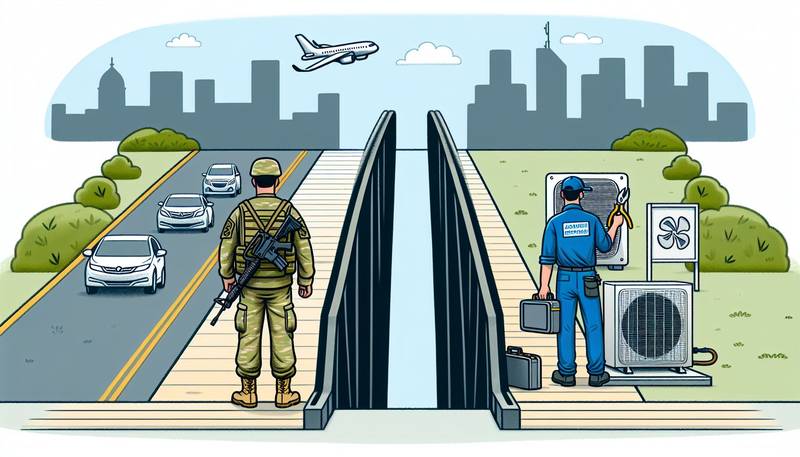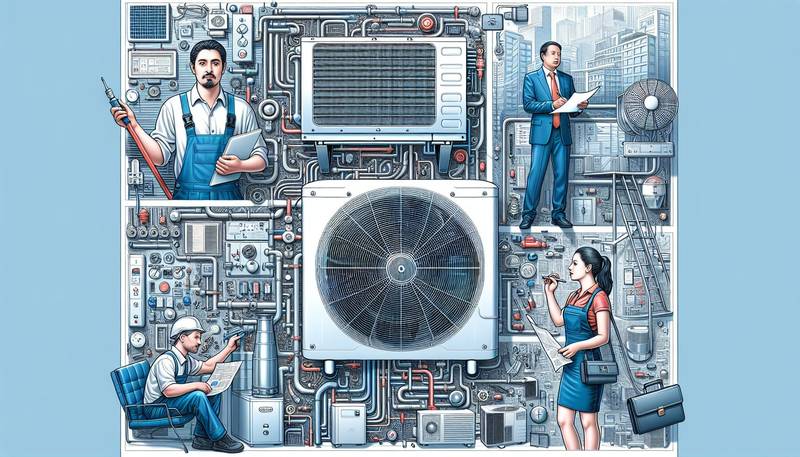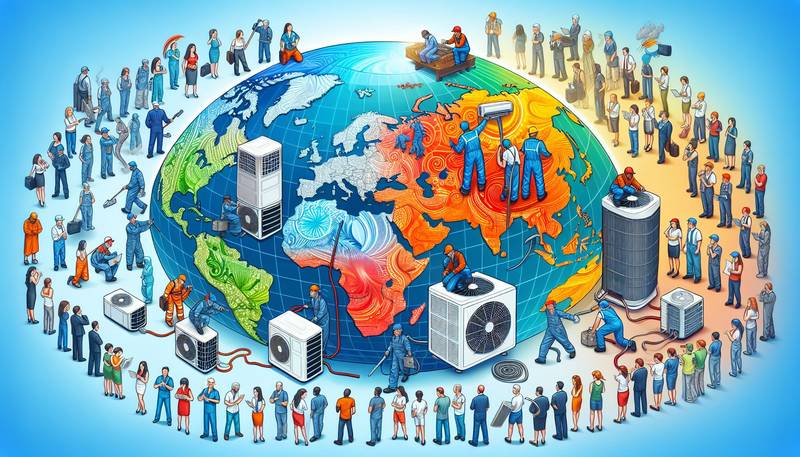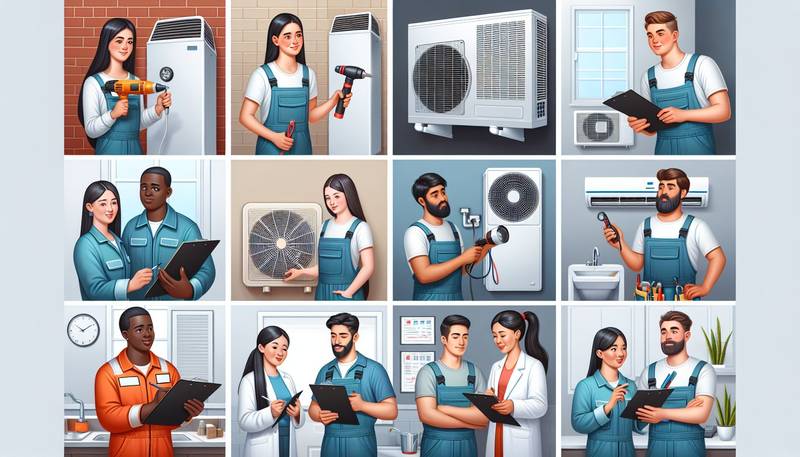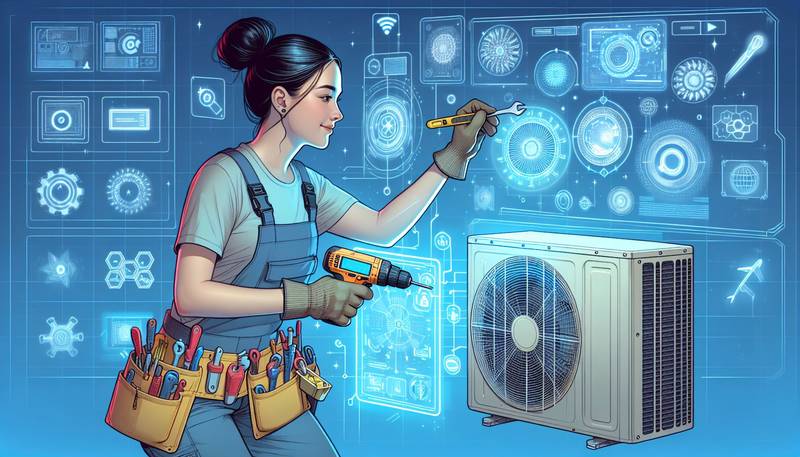Cool Careers: A Comprehensive Guide to Air Condition Jobs
If you are considering a career in this field, you have a wide range of options to choose from. In this comprehensive guide, we will explore the various cool careers available in the air conditioning industry and provide valuable insights into the skills and qualifications needed to succeed in this field.
HVAC Technician
HVAC (Heating, Ventilation, and Air Conditioning) technicians are responsible for installing, maintaining, and repairing heating and cooling systems in residential and commercial buildings. These professionals work with a variety of equipment, including air conditioners, furnaces, and refrigeration units. HVAC technicians need to have a strong understanding of electrical systems, mechanical systems, and refrigeration principles. They must also possess excellent troubleshooting skills to diagnose and fix problems with HVAC systems.
To become an HVAC technician, you typically need to complete a post-secondary program in HVAC technology or a related field. Some technicians also choose to pursue certification from organizations such as the North American Technician Excellence (NATE) or the Refrigeration Service Engineers Society (RSES). These certifications demonstrate your expertise and can help you stand out in a competitive job market.
HVAC Engineer
HVAC engineers design heating, ventilation, and air conditioning systems for buildings and other structures. They work closely with architects, contractors, and other professionals to create efficient and effective HVAC systems that meet the specific needs of each project. HVAC engineers need to have a strong understanding of thermal dynamics, fluid mechanics, and psychrometry. They must also be familiar with building codes and industry standards to ensure that their designs comply with regulatory requirements.
To become an HVAC engineer, you typically need a bachelor's degree in mechanical engineering or a related field. Some engineers also choose to pursue a master's degree or additional certifications to enhance their skills and knowledge. HVAC engineers can work for engineering firms, construction companies, or government agencies, and they play a crucial role in ensuring that buildings are comfortable and energy-efficient.
Refrigeration Technician
Refrigeration technicians specialize in installing, maintaining, and repairing refrigeration systems, such as walk-in coolers, freezers, and chillers. These professionals work in a variety of settings, including grocery stores, restaurants, and food processing facilities. Refrigeration technicians need to have a strong understanding of refrigeration principles, as well as electrical and mechanical systems. They must also be familiar with industry regulations and safety standards to ensure that refrigeration systems operate safely and efficiently.
To become a refrigeration technician, you typically need to complete a post-secondary program in refrigeration technology or a related field. Some technicians also choose to pursue certification from organizations such as the Refrigeration Service Engineers Society (RSES) or the Environmental Protection Agency (EPA). These certifications demonstrate your expertise in handling refrigerants and can help you advance your career in the refrigeration industry.
Conclusion
The air conditioning industry offers a wide range of exciting and rewarding career opportunities for individuals with the right skills and qualifications. Whether you are interested in becoming an HVAC technician, HVAC engineer, or refrigeration technician, there are plenty of options to choose from. By pursuing a career in the air conditioning industry, you can make a positive impact on the environment, improve energy efficiency, and help create comfortable living and working spaces for people around the world. So if you are looking for a cool career that combines technical skills with hands-on work, consider exploring the opportunities available in the air conditioning industry.
